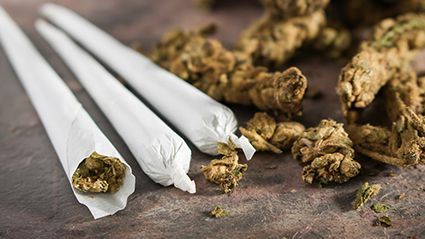THURSDAY, Jan. 14, 2021 (HealthDay News) — Here’s a New Year’s resolution that might be more common than you think: quitting pot.
A new study suggests it might explain why marijuana use typically falls at the start of the year and then increases as the year unfolds.
“We found that marijuana use is consistently higher among those surveyed later in the year, peaking during late fall or early winter before dropping at the beginning of the following year,” said study author Joseph Palamar, an associate professor of population health at New York University.
“We think this may be due, in part, to a ‘Dry January’ in which some people stop drinking alcohol or even stop using marijuana as part of a New Year’s resolution,” he said in a university news release.
Palamar and colleagues analyzed data from nearly 283,000 teens and adults who took part in the National Survey on Drug Use and Health from 2015 to 2019. The investigation found a steady increase in marijuana use throughout each calendar year.
Rates of reported marijuana use rose from not quite 9% in January through March to just over 10% in October through December, a 13% increase, according to the findings.
Other factors that might lead to lower marijuana use early in the year could include a lower supply of the drug and people who usually smoke outdoors staying inside due to cold weather, the researchers noted.
“Ultimately, we hope that these findings can be utilized by researchers and clinicians alike,” said study co-author Dr. Austin Le, a research associate at NYU Langone Health.
“Researchers studying marijuana use should consider seasonal variation, as surveys administered at the end of the year may yield different results than at the beginning of the year,” Le said. “And for those who wish to reduce marijuana use, it appears the best time for such targeting may be later in the year — when use is highest.”
The study will be published Feb. 1 in the journal Drug and Alcohol Dependence.
More information
The U.S. National Institute on Drug Abuse has more about marijuana.
SOURCE: New York University, news release, Jan. 11, 2021
Copyright © 2026 HealthDay. All rights reserved.

